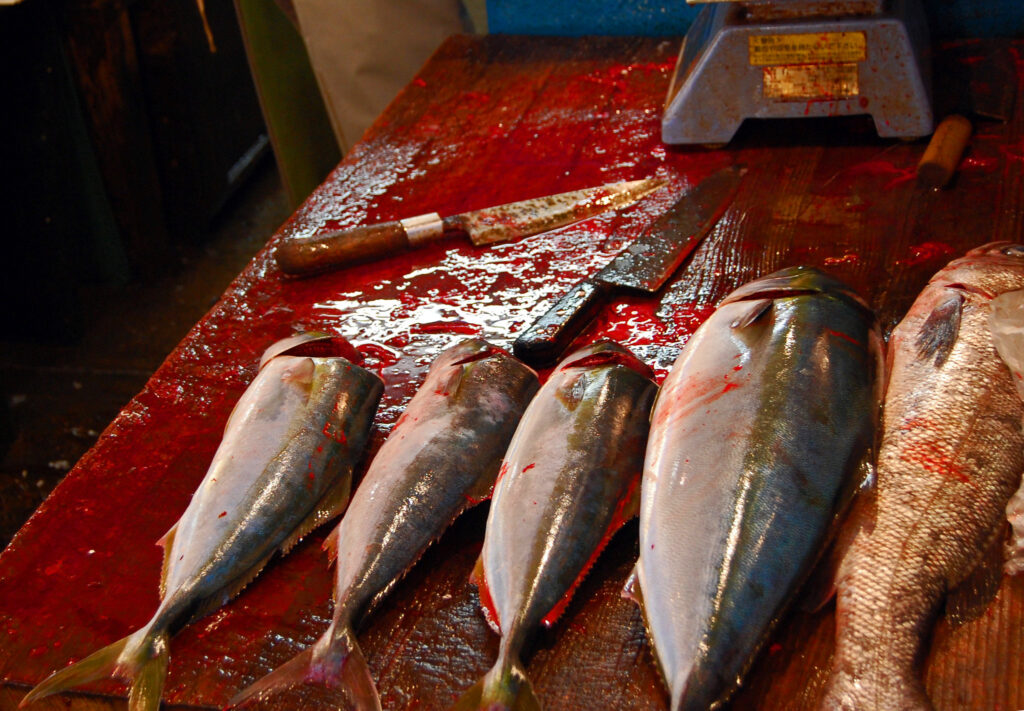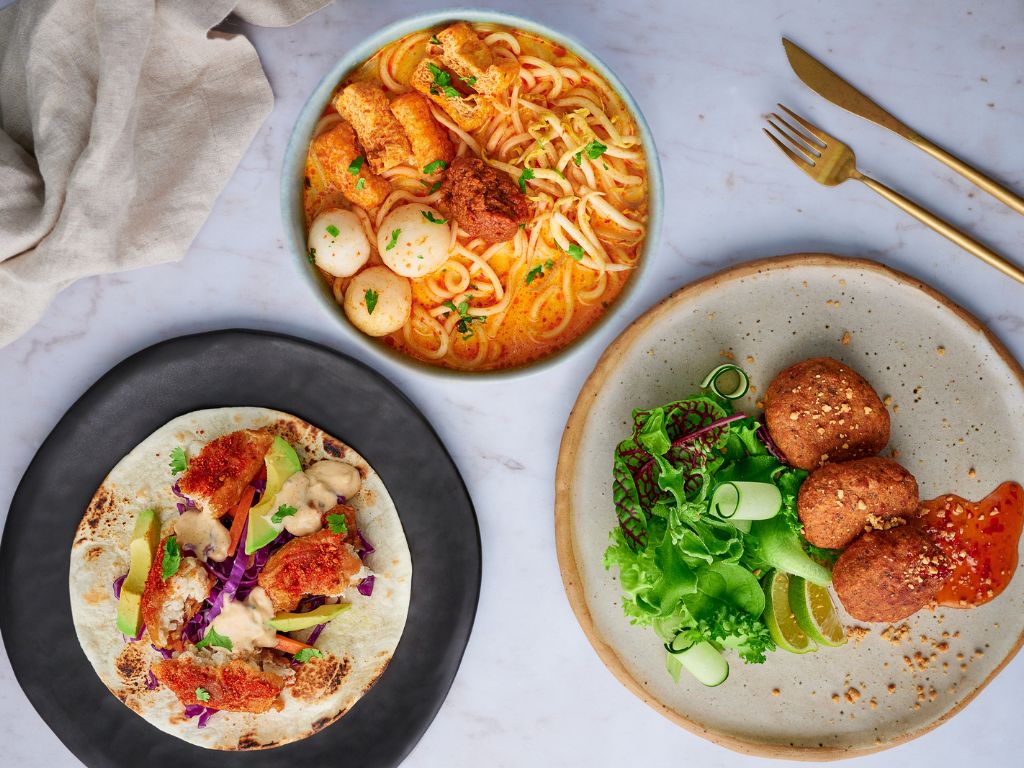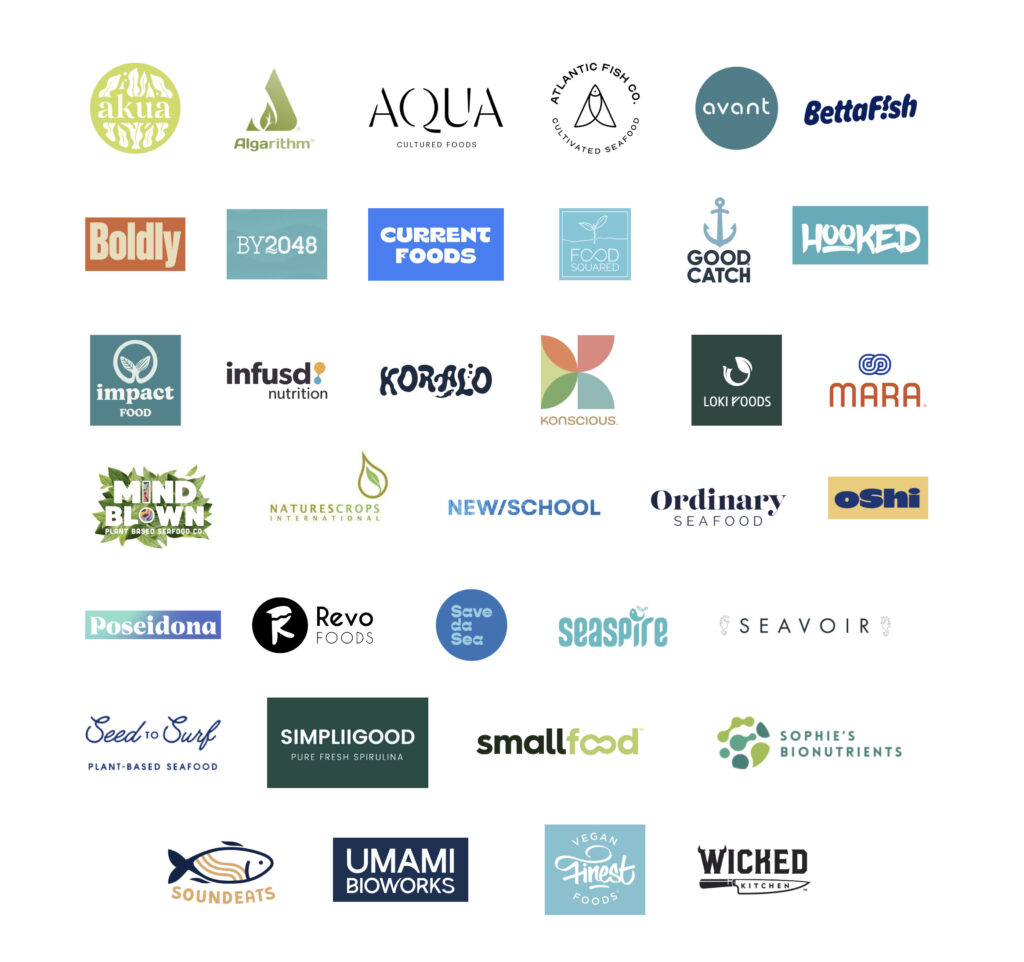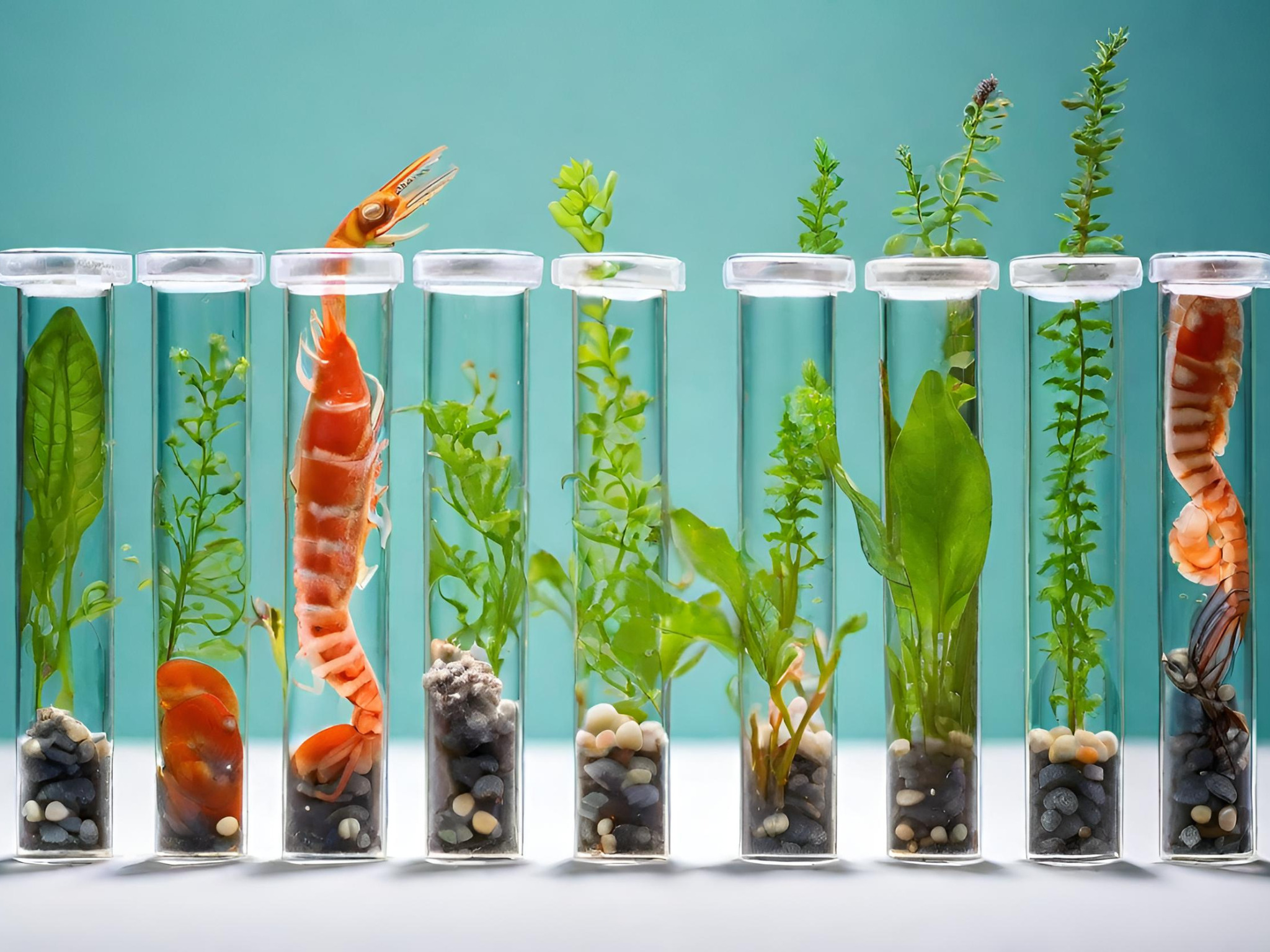Future Ocean Foods: 36 Global Alt-Seafood Startups Form Association To Tackle Overfishing, Microplastics & More
7 Mins Read
A group of 36 inaugural members have joined Future Ocean Foods, a global association to help advance the alternative seafood sector, across the plant-based, cultivated and fermentation verticals. Founder Marissa Bronfman speaks to Green Queen about the group’s focus, consumer attitudes towards alt-seafood, and the industry’s biggest challenges.
Despite microplastics taking over the seas, fish production linked to child and slave labour, and rampant overfishing that could lead to a collapse of global fisheries by 2048, we continue to eat seafood. In fact, while our fish intake has risen by 30% since 1998, it’s projected to grow by a further 80% come mid-century. With 3.3 billion people (40% of the global population) eating seafood as a primary protein source, this is a market that’s set to more than double by 2030.
The seafood industry’s problems were laid bare in the 2021 documentary Seaspiracy, which we described as a “shocking, terrifying and unsparing indictment of the commercial fishing industry”. One study has found that seafood eaters consume up to 11,000 microplastic particles per year, which can lead to long-term health risks. Conversely, styrofoam plastic packaging is widely used for seafood, despite research finding harmful effects on marine life and human health.
Plus, there’s the environmental question to deal with. Farmed shrimp and fish emit more greenhouse gases than pork or poultry. The heavy use of fuels in ocean fishery vessels is one big reason for this. And our continued appetite for these foods has meant higher production rates and, subsequently, overfishing has wiped out fish populations, threatened endangered species, and dredged up marine ecosystems.
As Lily Ng, owner of US vegan seafood company Lily’s Vegan Pantry, explained to Green Queen last year: “Overfishing disrupts the food chain. And when populations are diminished, other species will overpopulate, destroying biodiversity and making changes to the entire ecosystem. In the end, our consumption of fish still destroys our planet.”

The alt-seafood conundrum
It leaves the seafood sector in a state of reckoning. Many companies are working on more sustainable and ethical alternatives to seafood, whether that’s plant-based, cultivated, or fermentation-derived. According to alternative protein think tank the Good Food Institute (GFI), there are over 120 companies producing these foods across the globe.
Interest in this space is ballooning. One estimate put the sector at $42.1M in 2021, with a predicted annual growth of 42.3% to reach $1.3B in 2021. In the US alone, by-weight sales of plant-based seafood grew by 40% between 2019-22, according to GFI, which found that over $175M was raised by alt-seafood companies globally in 2021 – a 92% increase from the year before.
And yet, the category still represents a fraction of the overall plant-based alternatives market. GFI data has found that vegan seafood accounts for just 1% of the dollar sales of the total plant-based meat market. While there have been a host of developments and new products in the vegan seafood space, challenges around pricing and consumer adoption remain.
We’re talking about plant-based here because precision-fermented and cultivated seafood are still very niche and have yet to enter the market, owing to regulatory, cost, scale-up, and consumer acceptance hurdles. One of Asia’s leading cultivated seafood startups, Singapore-based Shiok Meats, has shifted focus to cultured beef in the short term, for example, with more time needed to navigate the scaling up of crustacean cell lines for cultivated seafood.
“You can’t really find any research on stem cells for seafood, because stem cell research was done on animals that are closer to humans, like mammals… nobody really looked at stem cells from shrimps,” its co-founder and CEO Sandhya Sriram told Green Queen in May.
Summing up the obstacles faced by this industry, she said: “We’re not stopping working on seafood, we just need more time.”

Tackling seafood’s ‘health halo’
It’s these sorts of challenges that Future Ocean Foods, a new global alt-seafood association, is looking to tackle. It has an inaugural membership of 36 companies from 14 countries, including the likes of Konscious Foods (Canada), Umami Bioworks, Avant Meats (both Singapore), Revo Foods (Austria), SeaSpire (India), Atlantic Fish Co., and Wicked Kitchen (both US).
Founded by Marissa Bronfman, a food tech and impact investment advisor and entrepreneur, the group has received VC funding from “leading food and climate investors”, and is already working with legacy seafood giants to create sustainable alternatives. “Alternative seafood offers us the opportunity to build a more delicious, nutritious, sustainable and ethical global food system,” says Bronfman.
But, she adds, there is lots of work to do. “Future Ocean Foods is currently focused on building community, fostering knowledge-sharing, and facilitating collaboration among our 36 members,” she tells Green Queen. “With this foundation, we seek to increase education and awareness of the benefits of alternatives for human health and environmental sustainability, among consumers, investors, governments, and retail, foodservice, and grocery. Driving [product] trials is extremely important, as is accessing the resources to successfully build and scale.”
The association aims to help raise the nutritional profile of seafood alternatives, with a particular focus on protein content and omega fatty acids. This is crucial in a consumer landscape that puts increasing importance on the health credentials of their food. In the US, for example, a 1,022-person survey in May found that health is the major factor behind eating vegan or vegetarian diets, with six in 10 Americans choosing it. Health benefits are the top reason for Brits to eat plant-based meat (39%) too, as per a 1,000-person poll last month.
“I don’t think all consumers in all markets have the same needs or preferences, but overall, consumers certainly tend to look to seafood for what they perceive to be a healthier protein choice,” says Bronfman. “The ills of meat consumption are now well-known; however, seafood still enjoys the effects of a ‘health halo’, despite mounting evidence and headlines about mercury, antibiotics, disease and the omnipresence of microplastics in fish.”
She adds: “Winning taste is critical, as one bad flavour experience can prevent a consumer from trying alternatives again. For the industry to succeed long-term, we will need to deliver on taste, texture, nutrition and price.”
Future Ocean Foods plans to host events and publish reports for alt-seafood

Future Ocean Foods’ members – 40% of which are women-founded – are working with conventional seafood operators to help diversify their portfolios with sustainable offerings and promote job security and economic prosperity among communities reliant on the seafood sector. According to the WWF, over 800 million people depend on fish for food and income globally.
The industry association will spotlight its members across the value chain – from microalgae and omega-based ingredient companies to whole-cut vegan salmon and cultured fish maw producers – at international food and climate events. And it’s planning a global event to convene conventional and alt-seafood startups, investors, trade groups, government stakeholders, as well as retail and foodservice representatives.
Moreover, Future Ocean Foods has collaborated with the Global Organization for EPA and DHA Omega 3s, and added sustainable food advocacy group ProVeg International as a strategic partner and GFI as a knowledge partner. Like the latter, it will produce industry reports to supplement its work.
“We have plans to spearhead a landmark global study about the health and environmental benefits of alternative seafood,” reveals Barfman. “We also look forward to working with our partners, like GFI, to support and contribute to their research and reporting whenever possible.”
She reiterates that the health halo associated with seafood is one of the biggest challenges for transforming the sector: “Overcoming this will take considerable global efforts in increasing education and awareness of the incredible benefits alternative seafood has for people and the planet, which is something we are keenly focused on as an association.”
She adds: “We must also inspire public and private capital to support this nascent industry, as developing, building and scaling anything in a new industry requires significant resources, but holds the greatest opportunity aswell. With dozens of species to reimagine, 3.3 billion people around the world looking to seafood as their primary protein source, and finite fish in the sea, alternative seafood is a hugely exciting early investment opportunity that more food and climate investors would be wise to look closely at.”



